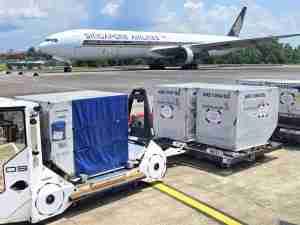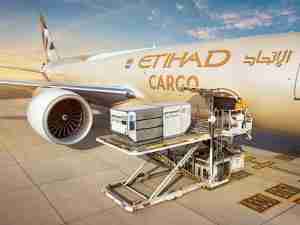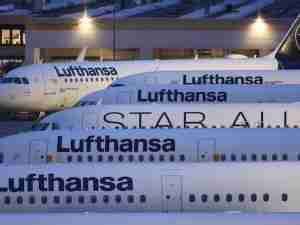Ryanair’s Frankfurt Raid Prompts Brusque Retort From Lufthansa
By: | Nov 02 2016 at 09:15 AM | Air Cargo
Ryanair Holdings Plc’s plans for its first-ever flights from Frankfurt sparked a bitter response from Deutsche Lufthansa AG, which vowed to fight back against the surprise incursion at Germany’s biggest hub.
While Ryanair will begin Frankfurt services with just two jets and four routes, Europe’s top discount airline sees potential for a bigger operation there, David O’Brien, its chief commercial officer, said at the airport Wednesday.
“We doubled our presence in Germany within three years,” O’Brien said at a media briefing. “There is no reason why that pace shouldn’t continue. There is great potential for cheap flights from Frankfurt.”
Lufthansa hit back by pledging to “react as appropriate” to the intrusion. Chief Executive Officer Carsten Spohr said his company’s own low-cost Eurowings arm could be drafted in to defend the hub “if there is a need,” while warning airport operator Fraport AG that he expects to pay the same fees secured by the discount giant. Fraport said it’s entitled to the saving if it adds new routes.
Ryanair’s plans for Frankfurt may have blindsided Lufthansa after Michael O’Leary, the Irish company’s CEO, ruled out operations from the airport only last year. “Our boss famously said ‘We won’t fly to Frankfurt,”’ O’Brien stated at the press conference. “He was wrong.”
The looming clash pits Europe’s biggest no-frills carrier against one of the world’s strongest travel brands. Lufthansa’s reputation, though, has proved little defense against a squeeze from low-cost carriers at home and fast-expanding Persian Gulf operators on lucrative long-haul routes.
Eurowings Growth
Lufthansa has responded by setting up Eurowings as an in-house discounter, though the unit has so far been limited to taking over routes away from Frankfurt, where short-haul flights feed passengers onto longer trips. Services from Munich, the group’s second German hub, will start next year.
Ryanair will start flying from Frankfurt in March using two Boeing Co. 737-800 jets, according to a joint statement from the Dublin-based airline and Fraport. Initial flights will serve Alicante, Malaga and Palma de Mallorca in Spain and Faro in Portugal on a daily basis, attracting an estimated 400,000 passengers a year. The schedule could be “much bigger” next winter, O’Brien said.
O’Leary has been reviewing Ryanair’s strategy in the wake of Britain’s June 23 vote to quit the European Union, downgrading expansion plans for its biggest market and looking to countries on the mainland for growth. Germany had already gained flights, with the airline opening a base this week in Hamburg, where it has located two planes and added seven routes to take its total to 14.
Route cuts at unprofitable Air Berlin Plc, Germany’s second-biggest carrier, have encouraged Ryanair to expand, while O’Leary has made it a priority to target major airports as the company seeks to appeal more to business people, who tend to book later and pay more. Frankfurt ranks with London Heathrow and Paris Charles de Gaulle as one of Western Europe’s three big hubs.
Ryanair’s previous foothold in the Frankfurt area has been at low-fee Hahn airport, a converted U.S. military airfield about 100 kilometers (60 miles) from the city. While derided for the distance involved, the airline won the right to advertise its flights as serving Frankfurt-Hahn after a series of court cases.
Fraport failed to raise fees this year for carriers using Frankfurt airport after regulators objected in late 2015. It has refiled the application, which includes incentives for airlines starting new routes. Lufthansa has meanwhile curbed capacity growth at Frankfurt, pledging not to add pilots before the Vereinigung Cockpit union agrees productivity improvements.
New routes attract a discount of as much as 50 percent in the first year, Fraport CEO Stefan Schulte said at the media briefing. That would amount to 300 million euros ($332 million) next year if applied to Lufthansa’s planned schedule, according to Spohr.










